The Halal Science Centre Chulalongkorn University, established in 1995 by Associate Professor Dr. Winai Dahlan, is recognised as the World’s First Halal Science Department.
For the past nearly-thirty years the centre has worked to develop Halal forensic science to “provide safety assurance to both Muslim and non-Muslim consumers…improving science, technology and innovation…with a commitment and aim to improve the safety of the world’s Muslim body and soul by following the motto: ‘Religion Certifies, Science supports.”
The centre has an office here in Chiang Mai and they are currently working on an exciting project to train up and support local farmers across the North in sustainable smart farm technology, to add value to their products and open up international Muslim markets for northern farmers and entrepreneurs.
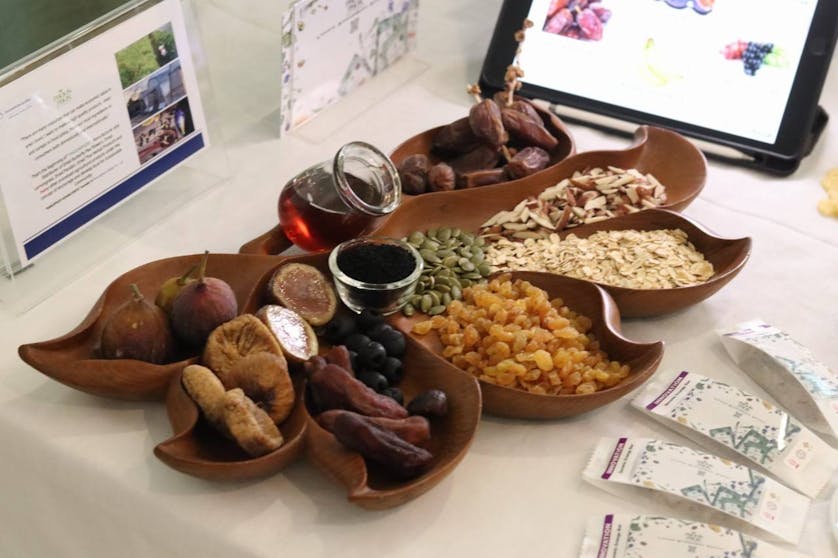
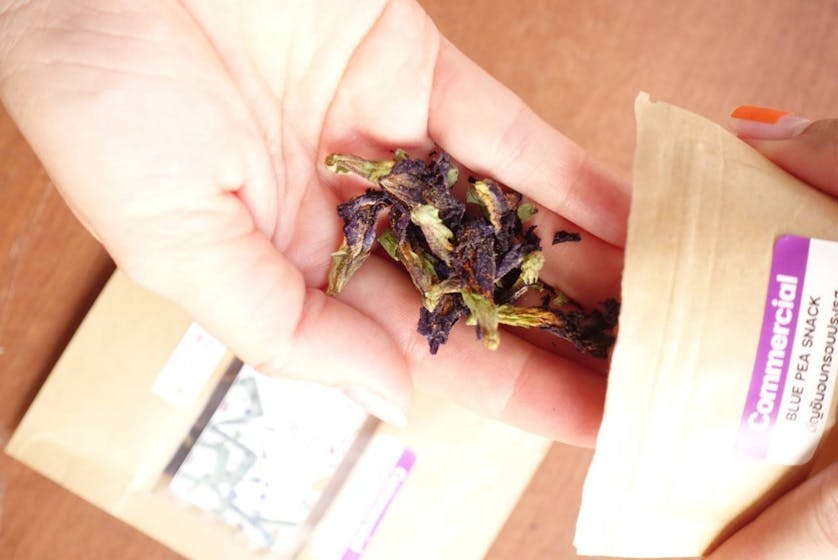
According to the director of the Chiang Mai office, Assistant Professor Dr. Pradorn Sureephong, over the project’s year-long course, a targeted 1,000 farmers across northern Thailand — Chiang Mai, Lamphun, Lampang and Mae Hong Son — will be trained in multiple aspects of smart farm technology as well as receive support and advice in taking their products into the international market.
There are five smart farms across Thailand set up as pilots sites, offering equipment in support of participating farmers. Here in Chiang Mai, the Sun Space Farm, right here in the city centre, is set up to support the training as well as being a practical application of farming and processing techniques.
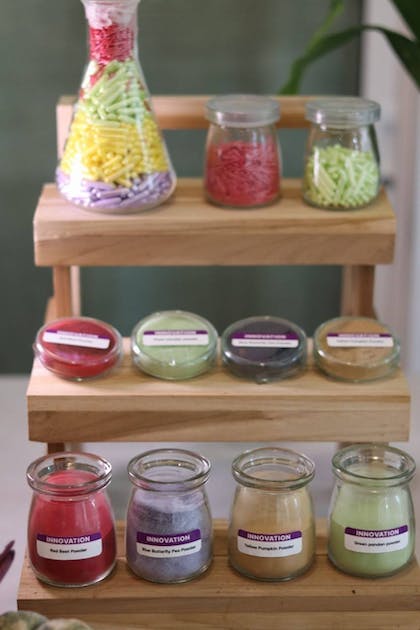
Participating farmers will have access to the project’s technology, its online platform and dashboard, its market research as well as its many experts who will be able to offer advice and up to date knowledge throughout. It is estimated that the project will generate up to 5.5 million baht to the regional economy within one year of its completion, which will be 12 million in 2024.
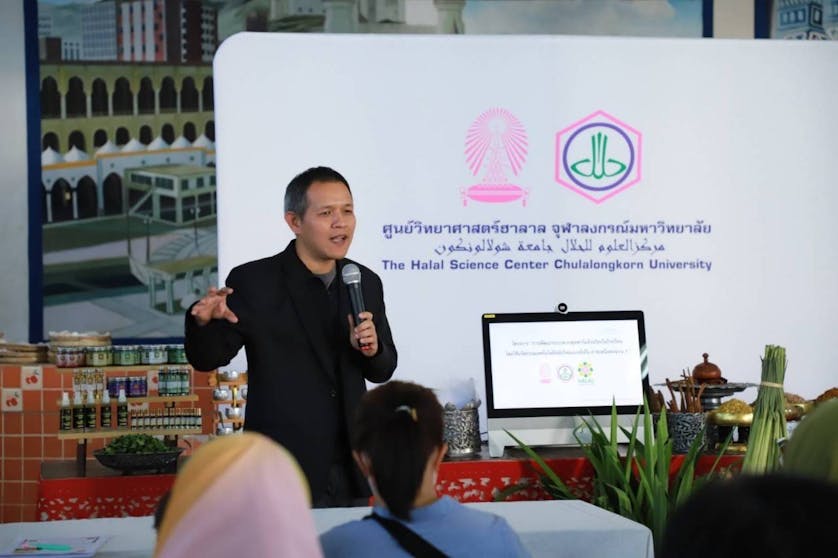
To date, there have been numerous seminars and workshops provided to 1,000 farmers in the North of Thailand on a variety of relevant topics on sustainable agriculture. These include ‘The use of the Metaverse for agriculture’ and ‘How to control automated systems through voice commands. Sustainable marketing covers topics such as ‘Creating channels for online sales’ and ‘How to utilise short videos for commerce’. Sustainable packaging teaching includes ‘How to add value with smart package design’ and ‘Creating a sustainable and professional brand with the right packaging’ amongst other topics. All practical, hands-on topics are helmed by leaders in the industry as well as lecturers and experts from top universities in Thailand.
“We want our farmers, mostly young farmers, to be able to confidently enter the massive global Halal market,” explained Assoc. Prof. Dr. Pradorn. “The Halal economy goes far beyond food; it encompasses nonfood products from pharmaceuticals to cosmetics and skin care. This project is unique in that it doesn’t just focus on one aspect, it works from upstream all the way to downstream, with the constant goal of consistently reaching and attaining Halal good agricultural practices.”
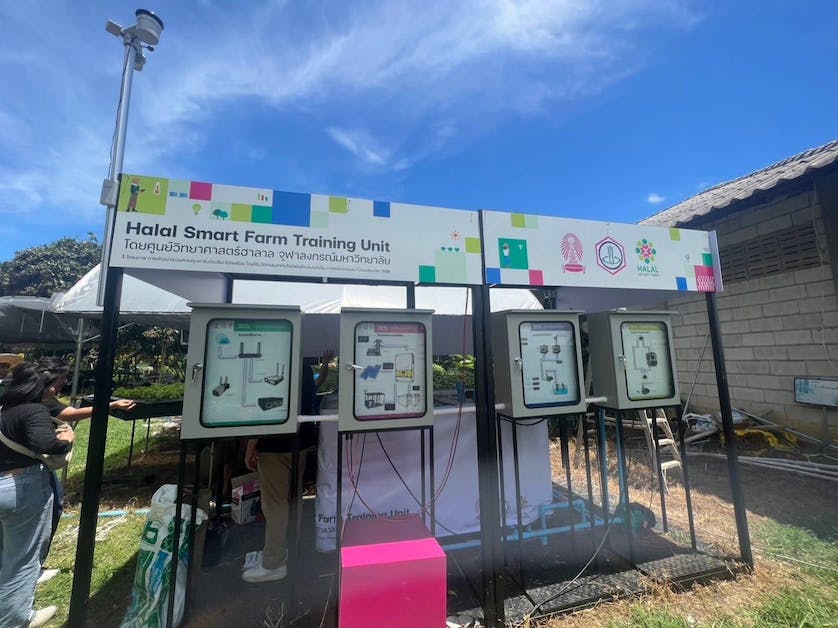

“Let’s start upstream with Halal certifications. With over 1,000 farmers across four Northern provinces participating at the Halal Smart Farming Training Unit, our mission is to train the trainer, so that these 50 participants will then go on to train more and more young farmers, resulting in thousands getting trained across the region. With the Halal certification as the guide and goal, more and more farms will become Halal compliant. Next, is our mid stream capacity building, which is working with processed food entrepreneurs to optimise and add value to their products. This is also where we focus on online marketing and offer multiple courses on how farmers can open up their own channels for marketing. Then we focus on the down stream with innovation and upskilling to add value.
Extensive market surveys have already revealed the scope of the potential markets from the Middle East to China and beyond. We know what they want, we know where they are. We just now have to raise our standards and improve our products and branding so that we can enter these markets. The way we look at this is that it is all demand driven, this means that we already know that there is a market there, we just must make sure we are certified and of a standard.”
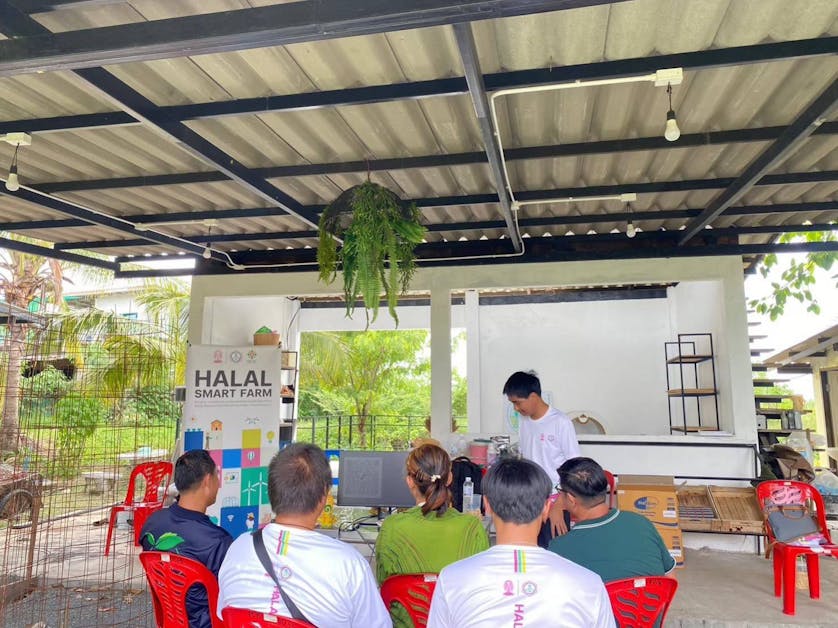
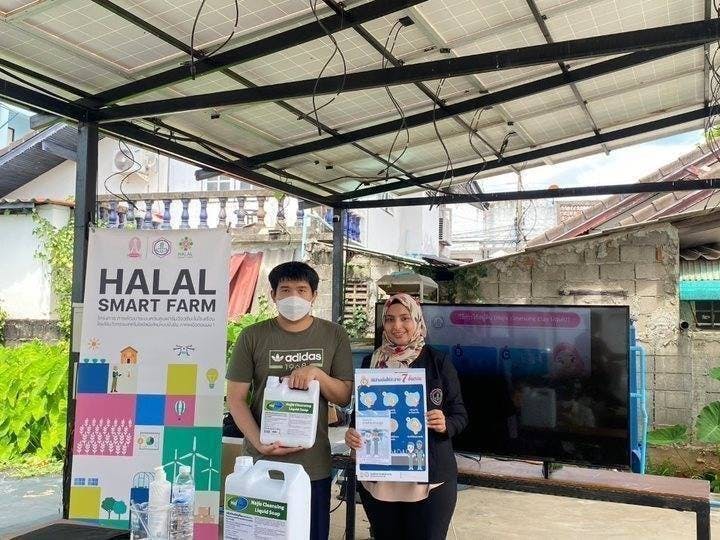

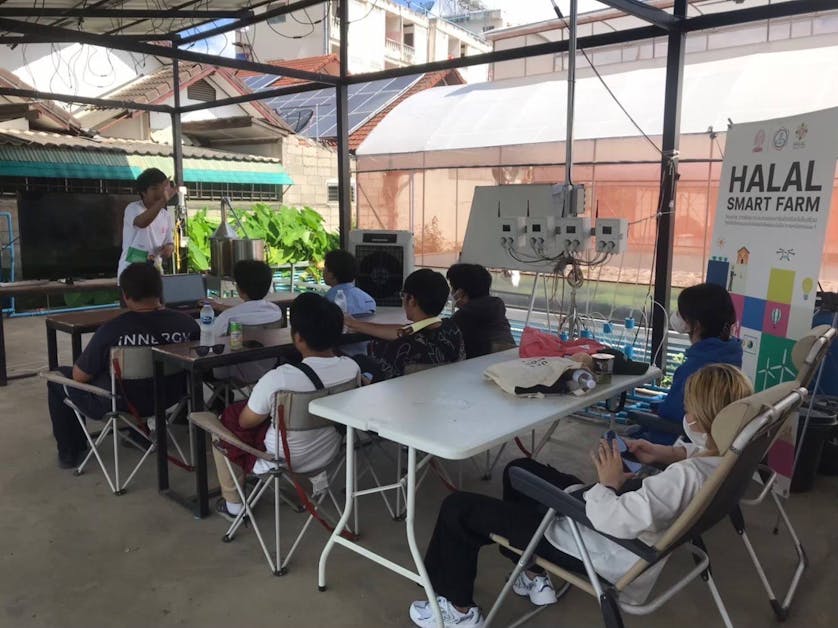
Assoc. Prof. Dr. Pradorn hopes to focus on technology and innovation to save labour, cost and time while adding value to products proven to be in demand.
According to Assoc. Prof. Dr. Pradorn, this project is considered by the government of Thailand to be one of the 6,000 nationwide projects marked as national priorities.
“There were over 100,000 projects submitted, but we were selected as a national priority, receiving a budget of 14.5 million baht for our one-year project,” he explained. “We are hoping that participating businesses will find that this project will help add up to 30% value to their current sales, whether by reducing costs or adding value.
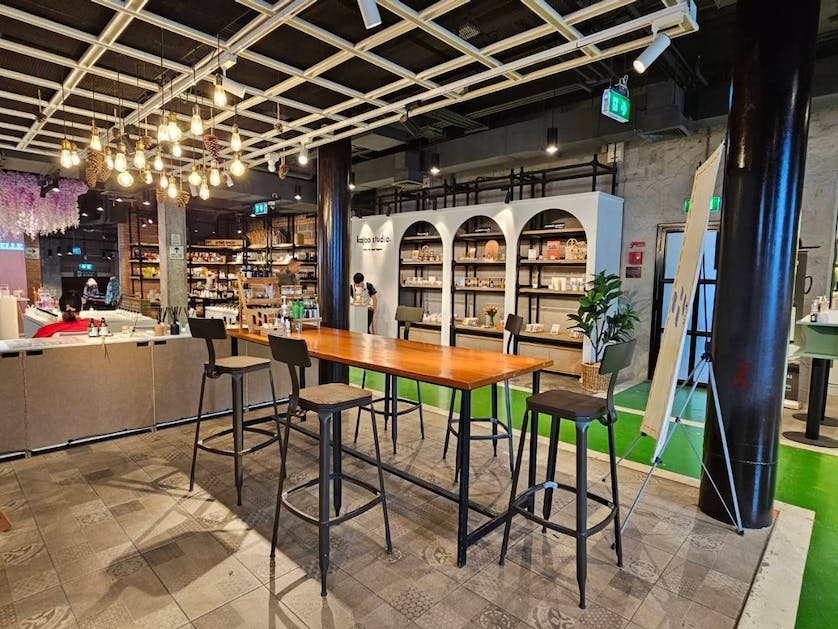
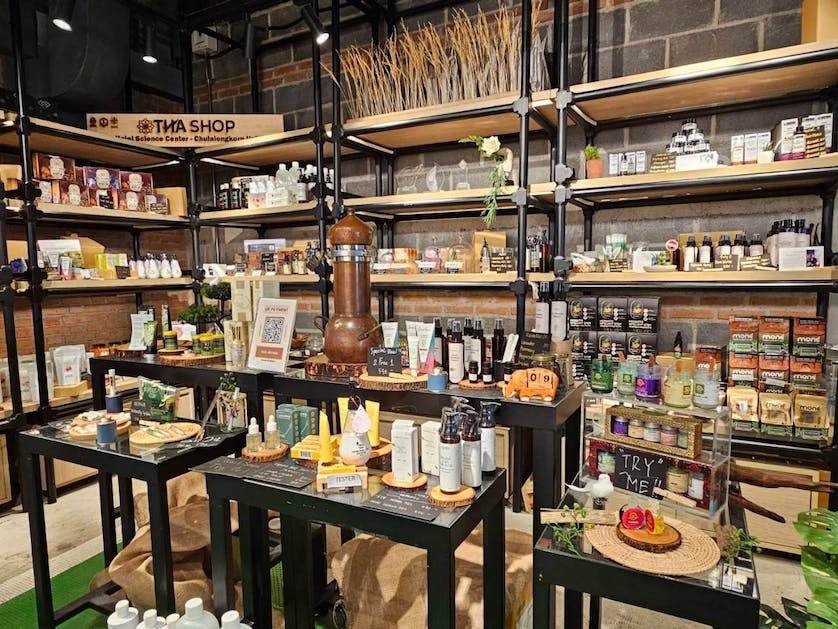
We were hoping for over 5,000 transactions as a result of the project and have already exceeded that number a mere few months in. Next year we will focus on the Middle East’s emerging market for cosmetics — we can’t compete with global brands, so we will focus on skin care and spa products where Thailand is gaining traction. Similarly, we can’t compete with behemoths like CP for animal products, but with certification we can add value.”

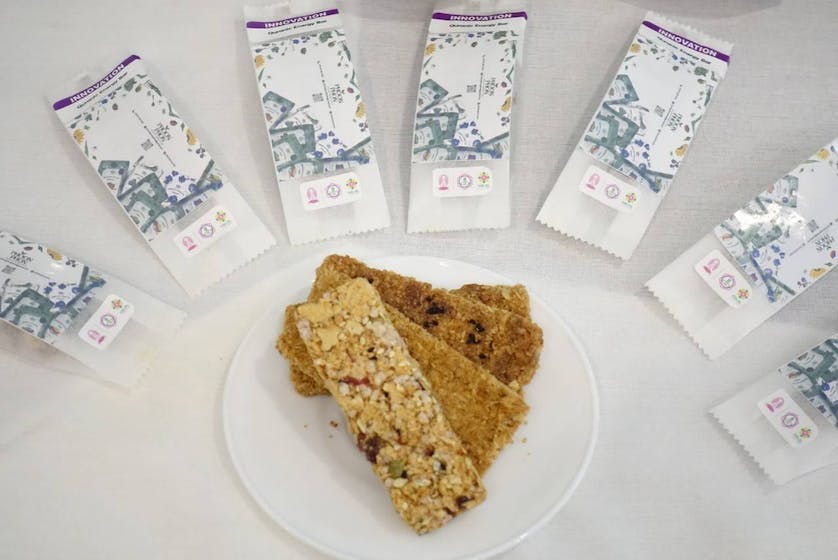
Thailand currently enjoys about 2.44% of the global Halal market, sitting at 15th place as an exporter of Halal.
“What we will prove is that with the aid of the government, Thailand can reach any competitive standard which will help Thai farmers and entrepreneurs to make more value-added sales to new unchartered markets. The possibilities are endless,” added Assoc. Prof. Dr. Pradorn.
The products to date have already begun to spark interest from buyers around the world. Herbal farmers who used to make pittance for their fresh or dried herbal products can use dehydration system, which provides a consistent and speedy process so that fresh produce can be turned into all sorts of products while retaining their high levels of nutrients. Hydrosol drinking water can be made from an assortment of plants, its concentrate then used in cosmetics and other products, again retaining all the good nutrients only found in its fresher origins. There is a Quranic energy bar which is hoping to make waves with its jam-packed flavour coming from products mentioned in the Quran, such as dates, banana, grapes, black cumin seeds, honey, cereal and nuts. Plant food colouring is also something many young farmers are exploring and hope to integrate into cosmetic products. There is also butternut squash flower pasta and rice pasta which are high in nutrients and will be of interest for the millions of people in the world who are gluten free.
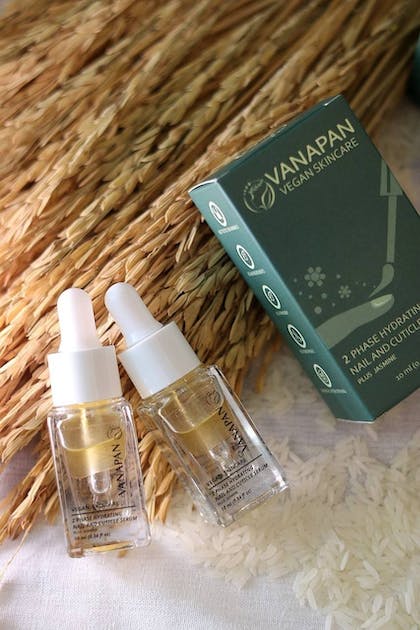
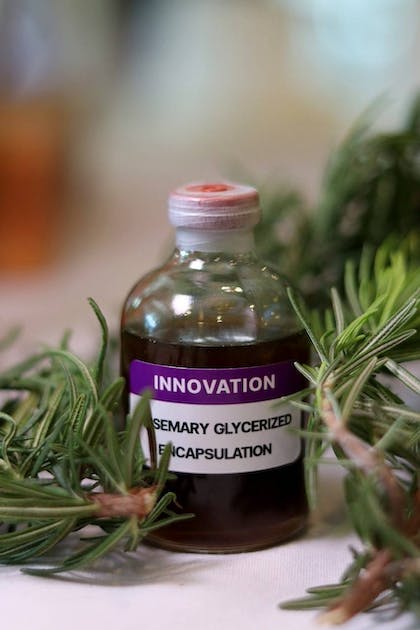
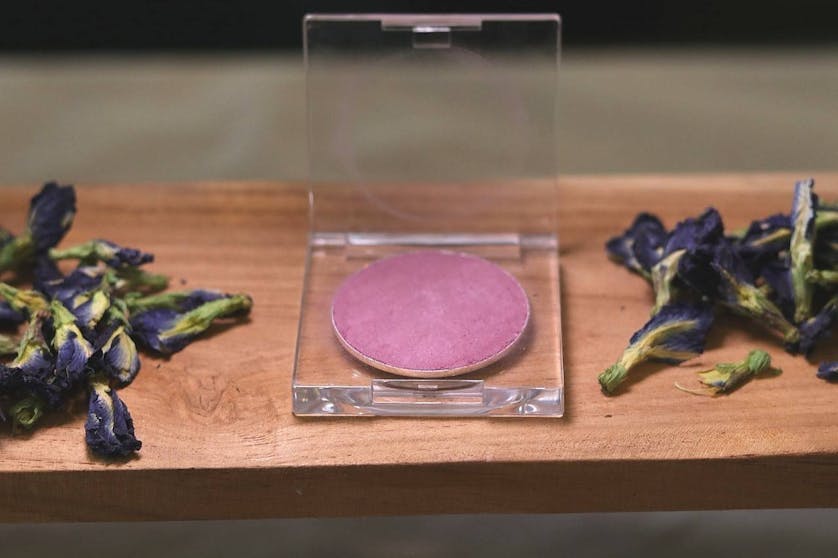
There is much work to be done at the Halal Science Center Chulalongkorn University Chiang Mai, but even 10 months into the project the future is becoming clearer. With a focus on sustainability, technology and innovation, a comprehensive bio-circular green economy could become a reality.
Any farmers or members of the public who have further interest in the Halal Science Institute Chulalongkorn University (Chiang Mai)’s smart farm initiative, please contact:
https://sites.google.com/view/halal-smart-farm/home?authuser=0
https://www.facebook.com/HSC.CU.CM?mibextid=ZbWKwL
https://www.facebook.com/HalalSmartFarm?mibextid=LQQJ4d
